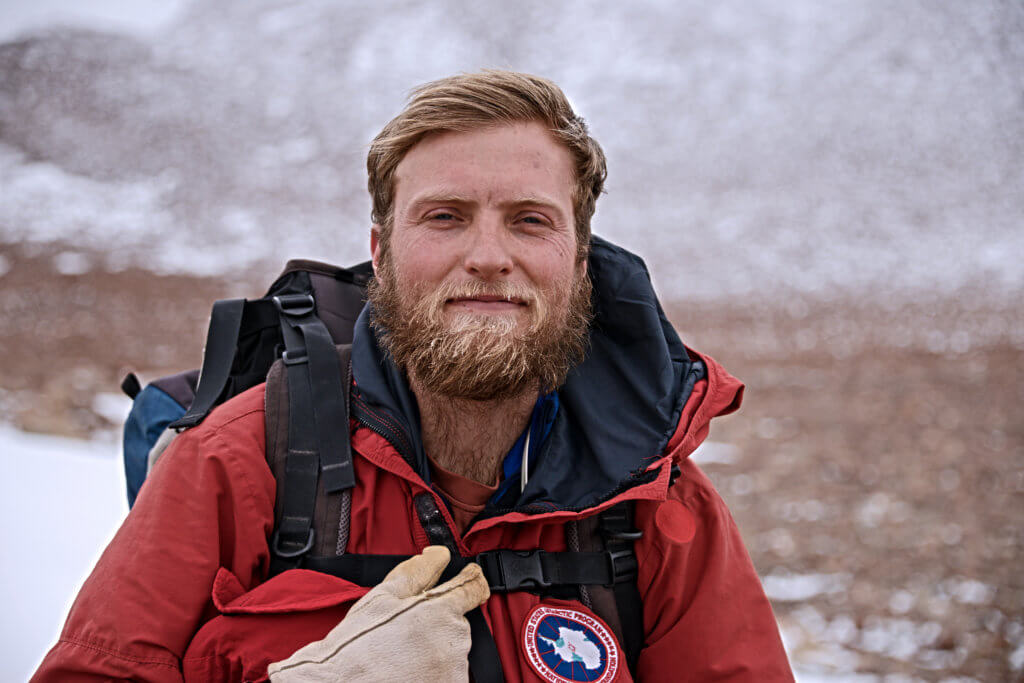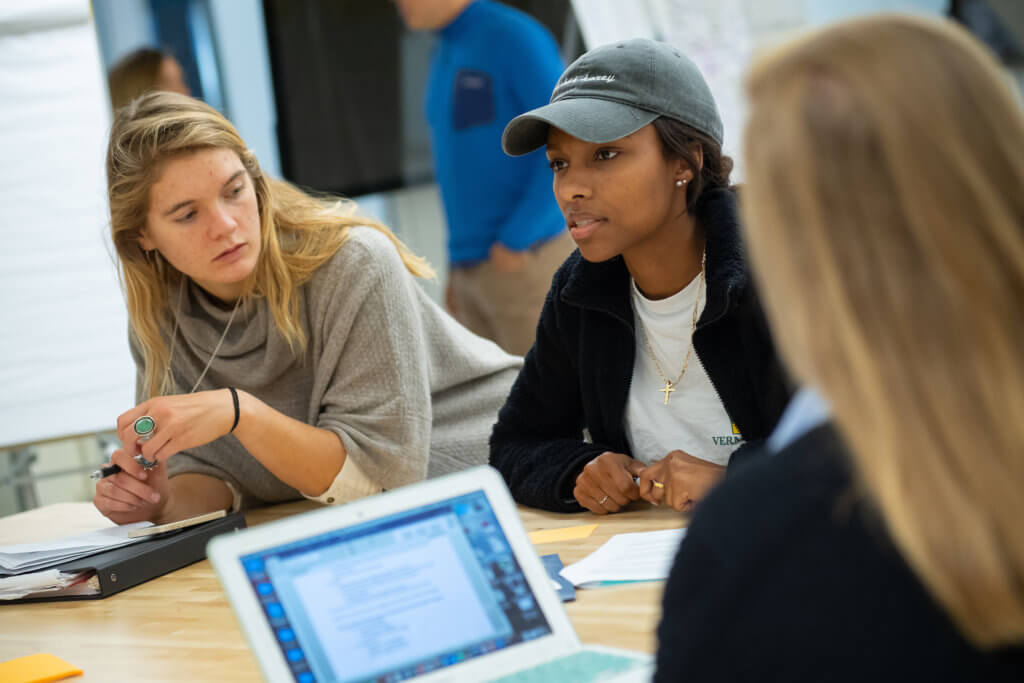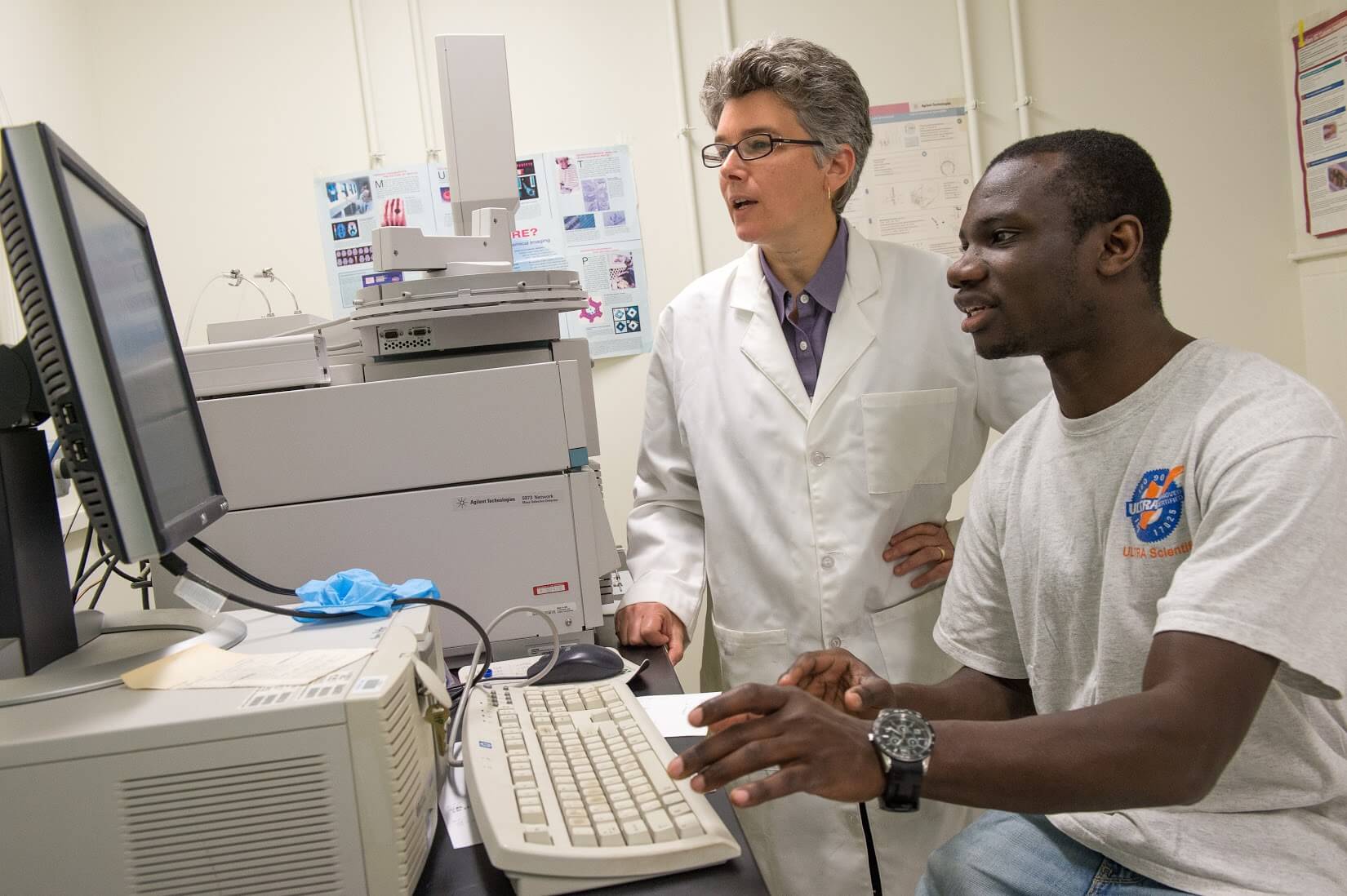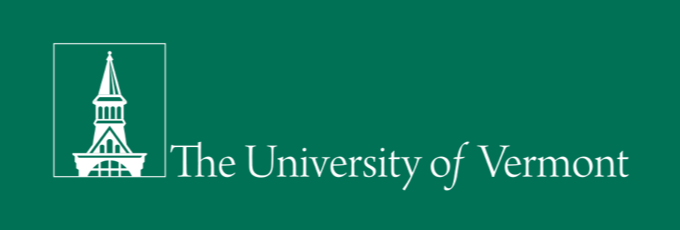Andrew Christ’s recent discovery is making a big impact on how we understand climate change. The Gund Postdoctoral Fellow at The University of Vermont’s College of Arts and Sciences found ancient plants under his microscope when he was looking at a long-lost sample from the bottom of the Greenland ice sheet.
It was more than just a time capsule from within the last million years. It suggested that if plants once grew on Greenland’s surface, the ice that now covers the island had melted. This could happen again. “Our study shows that Greenland is much more sensitive to natural climate warming than we used to think — and we already know that humanity’s out-of-control warming of the planet hugely exceeds the natural rate,” shares Christ.

Drew Christ
“This is not a twenty-generation problem,” explains Paul Bierman, a geoscientist at the UVM Rubenstein School of Environment and Natural Resources who collaborated with Christ at the NSF UVM Community Cosmogenic Facility. “This is an urgent problem for the next 50 years.”
Christ and Bierman, like the many UVM students and faculty members who came before them, are working towards building a more sustainable future.
With a campus surrounded by mountains, streams and lakes, UVM is the perfect base to learn how to protect our environment and promote a sustainable future. The people, programmes and research here are as inspiring as their surroundings.
At the Gund Institute for Environment, scholars and leaders are finding solutions to critical environmental issues — and they are doing it fast.
Here, the right people from across academia, government, business and society are brought together to speed up the rate of discovery, develop real-world solutions, and help build a sustainable future. The Gund Institute comprises 150 faculty fellows and affiliates from UVM and leading organisations worldwide, as well as students and postdoctoral researchers.
This is where the traditional disciplines of natural social sciences, business, health, technology, engineering and the humanities integrate. Researchers are diving deeper into the decline of pollinators; discovering what’s happening to arctic ice; understanding the value of the services that ecosystems provide; and reflecting on climate change and the human condition — sometimes all at once.
Many research themes here echo the United Nations Sustainable Development Goals. This connects the institute’s work to global priorities and ensures impact on policy.

Paul Bierman
“As UVM’s university-wide environment institute, we are building on UVM’s longstanding environmental leadership, and leveraging our deep bench of sustainability scholars, to make UVM one of the country’s most rewarding and exciting places to understand and address the global environmental challenges we face,” says Taylor H. Ricketts, Director of the Gund Institute.
UVM programmes that support the needs of humanity without destroying nature
UVM offers a range of programmes that challenge students to become inclusive problem solvers for the defining issue of their generation: sustainability. They are provided by several schools and colleges: Rubenstein School of Environment and Natural Resources; College of Agriculture and Life Sciences; College of Arts and Sciences; College of Engineering and Mathematical Sciences; and Grossman School of Business.
The Sustainable Innovation MBA is a 12-month programme where students gain the knowledge and skills they need to become change agents in fields as diverse as impact investing, sustainable development, mission-driven marketing, supply chain management, nonprofit management, and other socially responsible business functions.
“SI-MBA gave me the ability to think holistically about businesses and their impact on people and the planet,” shares graduate Lydia Carroon who is now a Business Operations Manager for Microsoft Airband Initiative.
For those who want to explore leadership practices that are inspired by the wisdom of nature and challenge forces of domination and oppression, the Masters of Professional Studies in Leadership for Sustainability fits the bill. For two years, students will follow an innovative blend of week-long learning intensives, interactive online courses, professional coaching, and an incredible network of faculty and professional affiliates.

Source: The University of Vermont
To equip a rising generation of action-oriented researchers, the university introduced a PhD in Sustainable Development Policy, Economics and Governance. This transdisciplinary doctoral education in the policies, practices and theories of sustainable development covers a core curriculum that includes applied policy and economic analysis, governance and process design, social science methods, and professional skills development. The programme produces graduates capable of conducting original, applied research that is designed to support sustainability and resiliency across social, ecological, and technical systems.
Its strength lies in its ability to tackle sustainable development from three different angles: economics, policy or governance. All three perspectives are necessary, according to Cindy Forehand, dean of UVM’s Graduate College, enabling the programme to produce professionals who are equipped to meet all the unique challenges inherent in the field.
“Nationally and internationally, it’s a big area, one of the most important issues in developing countries, community development, global health and environmental policy,” explains Forehand. “The time is right for this targeted programme, and UVM is the place to deliver it,”
Follow UVM on Facebook, Twitter, YouTube, Instagram and LinkedIn











